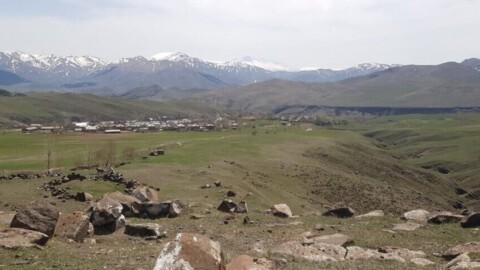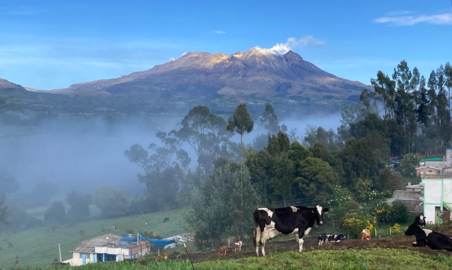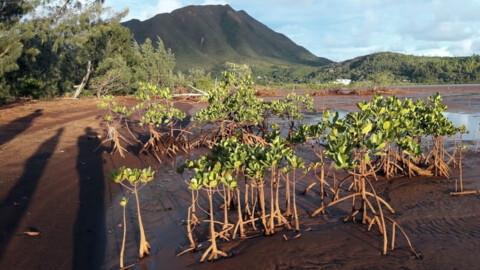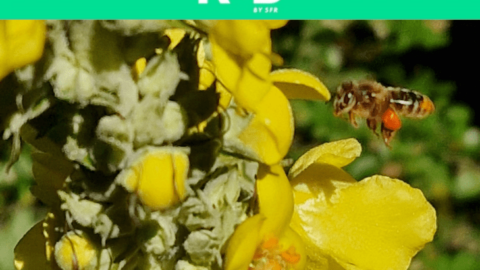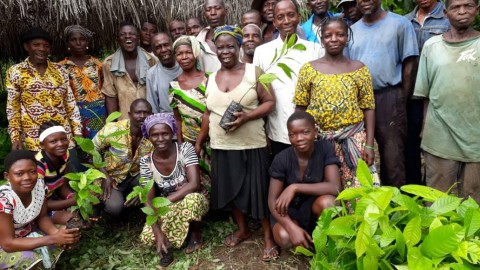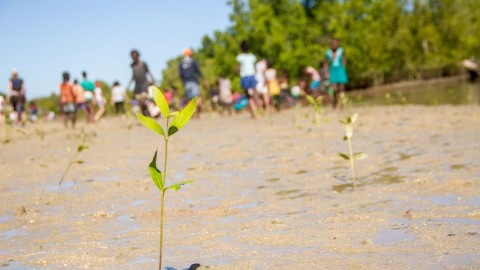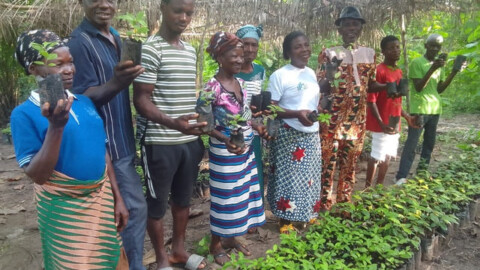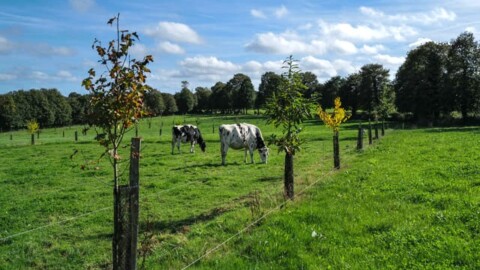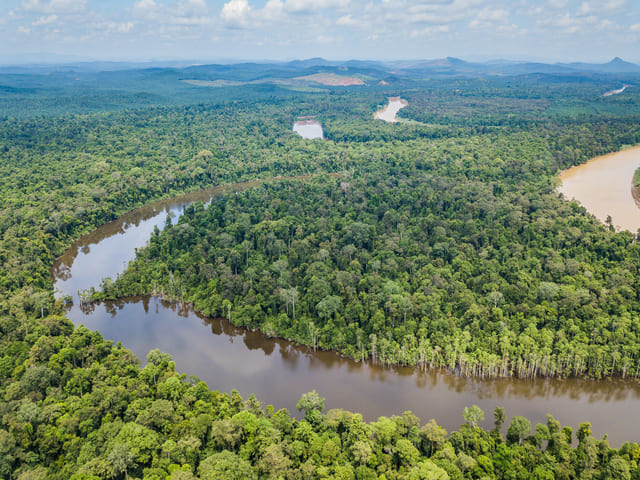
Background & challenges
This project, in the heart of the Lower Kinabatangan Wildlife Sanctuary, is located on the east coast of the Malaysian state of Sabah, in Borneo. It is recognised as one of the last forested floodplains in Southeast Asia. This ecosystem has rare flora and fauna that must be preserved. Since the 1950s, the woodlands around Kinabatangan have been used for various economic activities. Subsequently, in the 1970s, the over-exploited forest areas were reallocated mainly to growing oil palm, which since the 1980s has become the dominant cash crop in the region.
In 2005, the Malaysian government decided to protect this area and create a sanctuary: the Lower Kinabatangan Wildlife Sanctuary (270 square kms).
This project will therefore be undertaken in consultation with Sabah’s Forestry and Wildlife Departments. Itwill identify existing forest areas within the sanctuary that are heavily degraded and in need of clearing and replanting.
The local population is part of the Orang Sungai (river people) ethnic group originating Sabah. These communities live along Sabah’s main river systems, including the Kinabatangan River (Malaysia’s second longest river), which runs through the heart of the project area. Since the livelihoods of these ethnic communities depend on the forest and rivers, proving the health of their environment is vital. These communities are central to the project and will be involved in its implementation. In fact, the community has its own nursery for supplying the project. Members are also trained in soil preparation, planting and maintenance of the trees planted.
The biodiversity of the Kinabatangan flood plain is set to benefit greatly from the project Kinabatangan is home to a wealth of biodiversity, including animals such as the Bornean orangutan, Bornean elephant, proboscis monkey, Sunda panther, Malay bear, and Sunda pangolin, all of which are protected. The aim is to restore forest areas in order to improve habitat quality in degraded forest fragments, as well as linking up forest fragments. The biodiversity related benefits of the project will be measured as part of an already extensive monitoring programme developed by the Danau Girang Field Centre. This monitoring programme includes camera trapping and GPS tracking of individual animals. Over the past 16 years, a large number of species have been tracked by GPS along the Kinabatangan River. This activity provides crucial information on movements and home range, as well as improving landscape management for survival of these species.
Planting 26,250 trees on 15 hectares of deforested land heavily degraded by oil palm monoculture will deliver the following benefits:
- reduce the risk of soil degradation and erosion;
- improve water quality by acting as a natural filter and retaining sediments, excess nutrients and pollutants (especially from oil palm plantations);
- recreate ecological corridors for local fauna with a wide diversity of native species;
- tackle climate change.
Project type

Forestry
Beneficiaries

The local community residing in Mukim Batu Puteh, whose population comprises mainly people from the ‘Orang Sungai’ ethnic group. They have formed their own community co-operative called ‘Koperasi Pelancongan Mukim Batu Puteh Berhad (KOPEL)
Number of trees

26,250 long lasting trees
Species planted

The native trees selected for planting in the designated reforestation area will be based on species naturally found in the surrounding forest. These trees are specifically chosen for their ability to withstand flooding and provide food for local wildlife once mature, for example : Bayur Pterospermum sp, Belian Eusideroxylon zwageri, Binuang Octomeles sumatrana or Bongkol Nauclea subdita
Partner

Danau Girang Field Centre and KOPEL
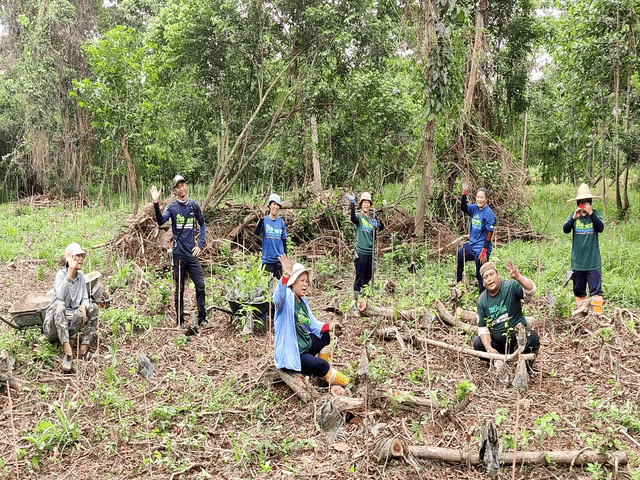
Works timeline
- July 2024: preparing plots and soil
- August 2024: planting
- 2025 to 2027: monitoring and maintaining plantations
Planting partner
Danau Girang Field Centre was set up in 2007 and Danau Girang Research and Conservation Berhad was set up on 20 October 2021. The objectives of DGRC Bhd are: (1) to initiate, design and carry out scientific research on Sabah’s wildlife and natural ecosystems; (2) to formulate and implement conservation policies for the effective management of wildlife based on research findings and contribute towards preserving and protecting Sabah’s biodiversity; and (3) carry out educational and awareness activities including public outreach and capacity building programmes.
Budget
The total budget to be raised is €144,375, i.e. €5.50 per sustainably planted tree:
- 95% of which is earmarked for the planting project, broken down as follows:
- Nursery, soil preparation, planting, monitoring, and maintenance: €3.86
- Risks/hazards: €0.39
- DGFC’s overheads: €0.30
- A Tree for You’s collection, monitoring and communication costs (10.27%): €0.56
- and 7% (€0.39) for A Tree for You’s overheads.


